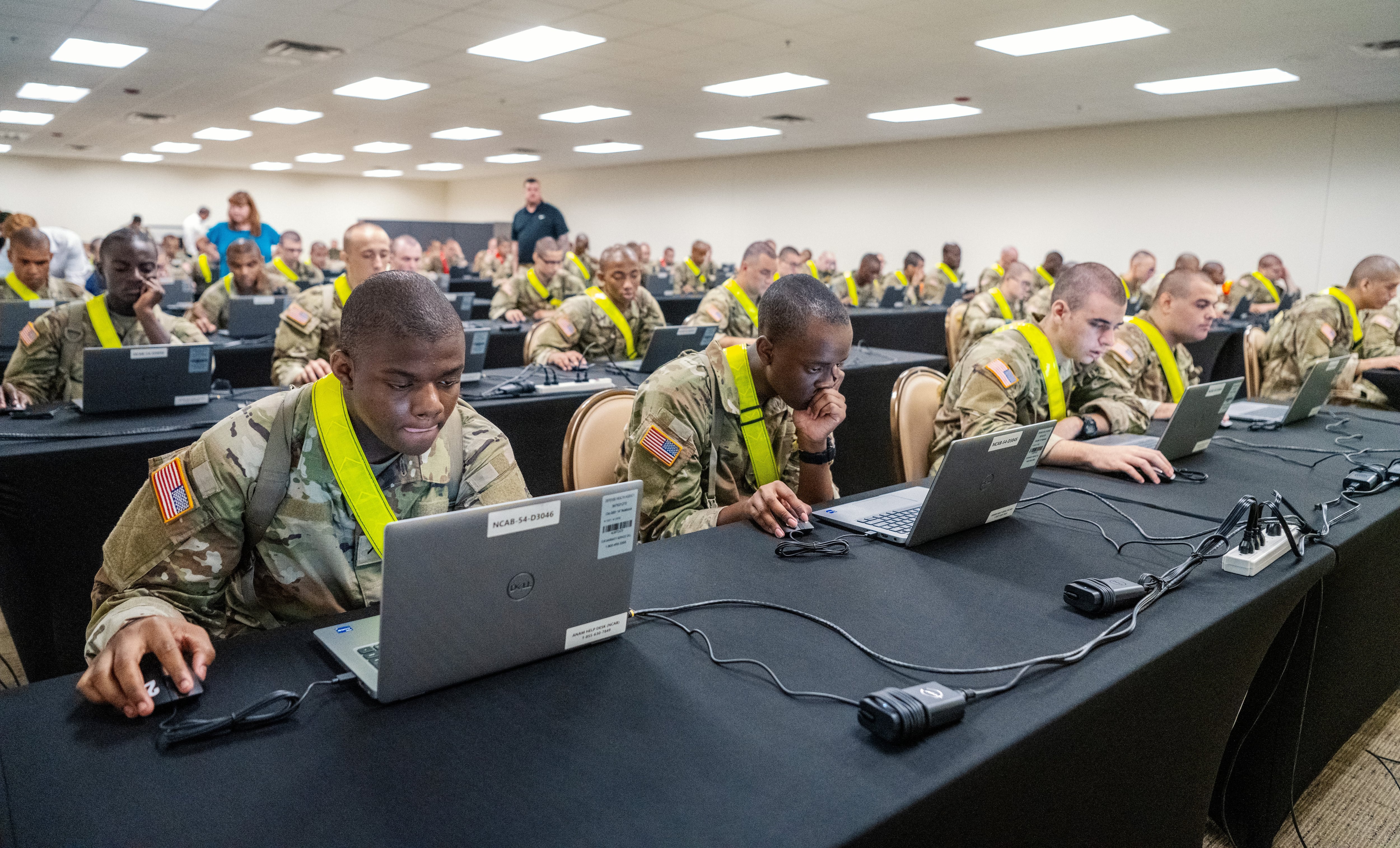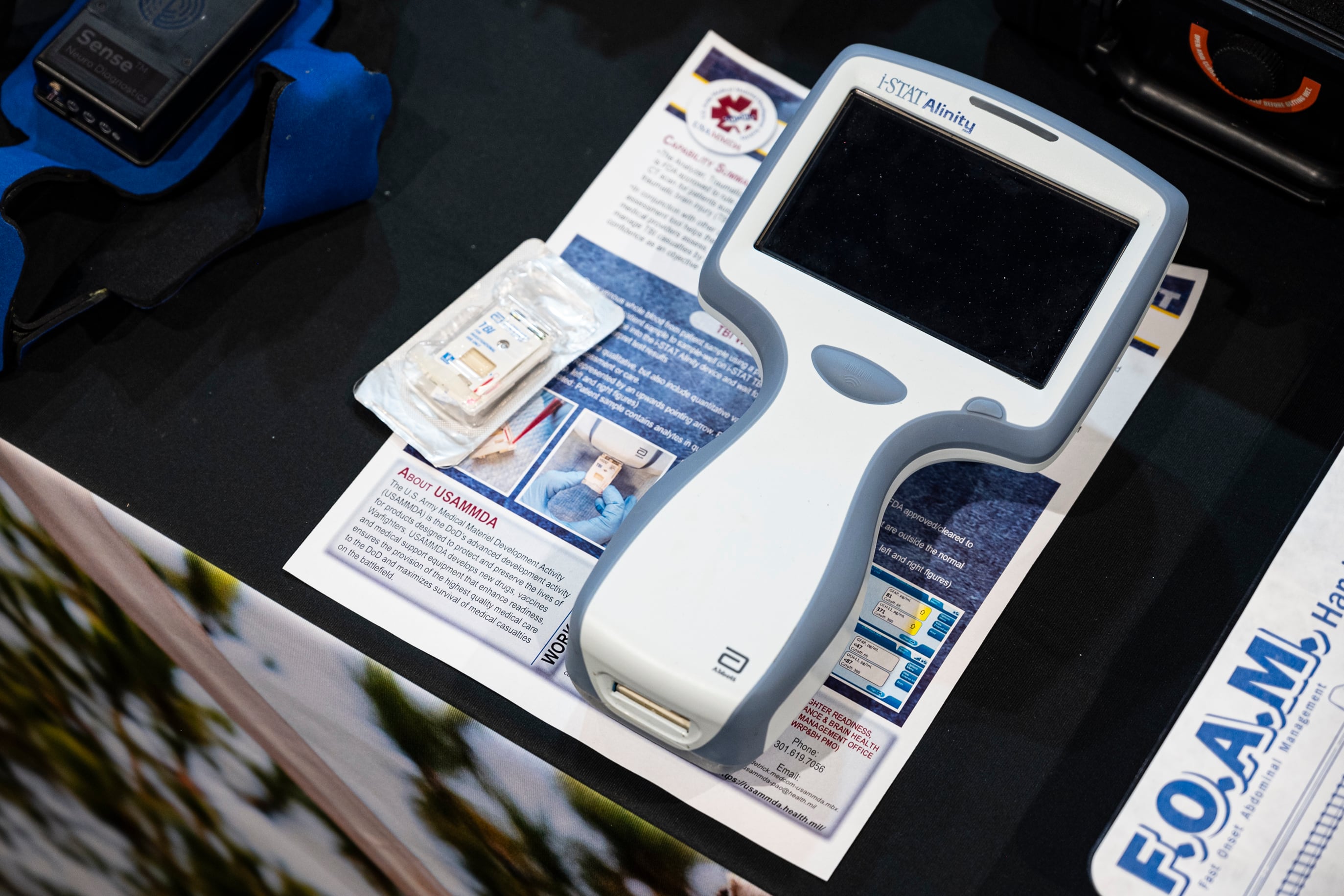The Army has announced its new mental health screening program for recruits this summer to assess soldiers’ brain health, officials confirmed to Military Times.
Fort Moore, Georgia, began testing this month to measure the brain function of incoming soldiers, following Fort Sill, Oklahoma, which began the program in June, according to Army Col. Jama VanHorne-Sealy and the Army Medical Command. Testing at two other primary training sites, Fort Leonard Wood, Missouri, and Fort Jackson, South Carolina, is scheduled to begin in late September, he told Military Times.
Fort Moore personnel will complete a psychological assessment test during operational training, which takes place seven to 10 days after posting, according to operations spokeswoman Jennifer Gunn.
Meanwhile, more than 5,600 Army ROTC cadets took a basic brain health test in June during the annual summer training at Fort Knox, Kentucky, VanHorne-Sealy said, and in November , examinations will begin for the cadets of the US Military Academy at West Point.
All services are scheduled to begin testing at all entry training sites by the end of 2024, according to the Army.
This process allows for the monitoring of the mental health of service members earlier in their careers, allowing health workers to track significant changes, including potential brain injuries.
Dr. Steven Porter, director of neurocognitive testing with the Army Surgeon General’s office, stressed the importance of moving away from the long-standing cognitive testing program that began in 2007, which followed a precedent and casualties. intermediate, to a more comprehensive, intensive approach that reviews frequently brain health.
“Without continuous monitoring, changes in a soldier’s thinking may not be apparent until an incident that puts a service member or their team at risk,” he said in a statement.

The tests are not used to bar anyone from the service, VanHorne-Sealy said, adding that the 25- to 35-minute test assesses ten areas of cognitive functioning and can be administered through individual or group.
The Army discussed tracking the brain health of new recruits earlier this year in the wake of the October 2023 mass shooting in Lewiston, Maine, by an Army unit, the Army Times previously reported. . The soldier’s brain showed evidence at autopsy of traumatic brain injury, associated with concussions and large explosions.
In August, Defense Department leaders unveiled a series of new measures designed to protect soldiers from “high-explosive” risks associated with the use of weapons, Military Times previously reported.
In an Aug. 8 department memo, Assistant Secretary of Defense Kathleen Hicks called for all new recruits to be screened for brain injury symptoms by the end of the year, and all current and active duty personnel to be screened by the end of year. of the 2025 budget.
“Overexposure is one of the many factors that can negatively affect the health of a warfighter’s brain,” he shared in a statement.
The Army’s goal for soldiers in active duty positions with the greatest potential for exposure to stress is to have them screened annually; Meanwhile, workers with high exposure will be tested twice a year and those with low exposure will be tested every three years, VanHorne-Sealy said.
BE CAREFUL

At the annual meeting in July, experts gathered to review the latest DOD and service research and methods to protect service members exposed to extreme stress.
“I think the important thing is, we need to continue to align DOD,” VanHorne-Sealy said in a statement following the event. “There’s a lot of work that’s going on that we can learn from, take from others, and create a better program overall.
Jonathan is a staff writer and editor of the Early Bird Brief newsletter for Military Times. Follow him on Twitter @lehrfeld_media
#army #starting #psychological #test #track #brain #health #soldiers